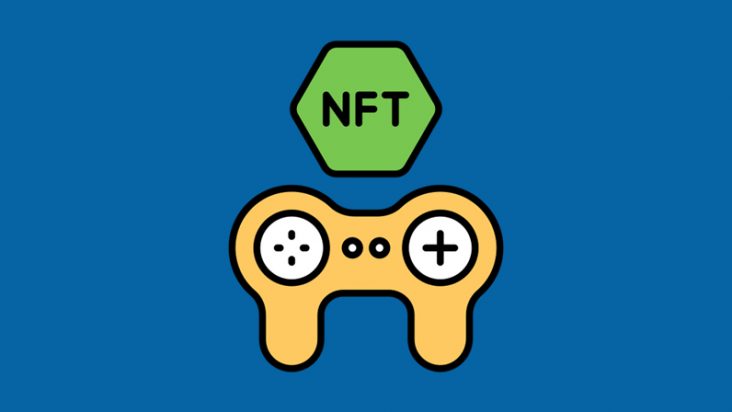
In recent years, the gaming sector has undergone a remarkable transformation, largely due to the pioneering efforts of GameTech startups. These trailblazing enterprises have challenged conventional gaming practices and brought forth cutting-edge technologies that have redefined the realm of interactive amusement. This article will explore the diverse and far-reaching impact of GameTech startups on the evolution and future trajectory of the gaming industry.
GameTech Startups
GameTech startups have become vital contributors to the gaming industry, bringing fresh ideas, cutting-edge technologies, and transformative business models. These startups consistently drive innovation, pushing the boundaries of the industry and captivating players with immersive experiences.
One of the key reasons behind the importance of GameTech startups is their relentless pursuit of expanding the possibilities of gaming. They introduce groundbreaking technologies like virtual reality (VR), augmented reality (AR), cloud gaming, and blockchain integration, revolutionizing gameplay and interaction for players. Notable startups such as Oculus VR, which introduced VR headsets to consumers before being acquired by Facebook, have transformed the way players engage with virtual worlds.
Moreover, GameTech startups cater to niche markets and diverse player preferences. By focusing on specific genres, platforms, or target audiences, startups can create unique gaming experiences that deeply resonate with players. Indie game studios like Supergiant Games, renowned for titles such as Bastion and Hades, have gained recognition for their distinctive artistic styles and innovative storytelling techniques.
GameTech startups play a vital role in shaping the gaming landscape, bringing innovation, technological advancements, and tailored experiences to players worldwide. Their contributions are instrumental in driving the industry’s growth and pushing the boundaries of what gaming can achieve.
How to Raise Money for a Gaming Startup?
In the rapidly evolving world of GameTech, securing funding for your gaming startup is crucial. Platforms like defstartup.org offer valuable resources and insights for aspiring entrepreneurs in the gaming tech industry. Whether you’re looking into defstartup gaming tech, defstartup gaming, or defstartup tech games, understanding how to attract investors and secure financial backing is essential for success. This section will guide you through the strategies and resources available to raise money for your gaming startup, ensuring you have the support needed to bring your innovative ideas to life.
- Leveraging Defstartup Networks
Defstartups offer a specialized ecosystem that can be immensely beneficial for gaming startups. These platforms connect entrepreneurs with investors who are specifically interested in tech and gaming innovations. By joining a defstartup network, you can gain access to a community of like-minded individuals and potential investors who understand the unique demands and opportunities of the gaming industry. Make sure to highlight your startup’s potential within the defstartup tech games sector to attract the right kind of attention.
- Crafting a Compelling Pitch
Your pitch is your opportunity to make a strong impression on potential investors. Focus on the unique aspects of your game or gaming technology, and how it stands out in the competitive market. Emphasize your team’s expertise, your product’s innovative features, and the market demand. Including keywords like “defstartup games tech” in your pitch can help position your startup within the niche of gaming technology, showcasing its relevance to the current trends and investor interests.
- Utilizing Crowdfunding Platforms
Crowdfunding has become a popular method for raising money for gaming startups. Platforms like Kickstarter and Indiegogo allow you to reach a broad audience of gamers and enthusiasts who are willing to support innovative projects. To maximize your success, create a detailed campaign that explains your game, its features, and your funding goals. Highlight the “defstartup games” aspect to attract backers who are particularly interested in tech-driven gaming innovations.
- Seeking Out Strategic Partnerships
Forming strategic partnerships can provide both funding and valuable resources for your gaming startup. Look for established companies in the gaming and tech industries that might be interested in collaborating. These partnerships can offer financial support, technical expertise, and market access. By aligning with partners who are part of the games defstartup network, you can leverage their experience and reputation to boost your startup’s credibility and reach.
Examples of Successful GameTech Defstartups
The GameTech industry has witnessed the rise of numerous successful startups that have left a significant impact on the landscape. Unity Technologies stands out among them as a notable example, offering a cross-platform game engine that has powered some of the most popular video games. Unity’s engine has been instrumental in creating beloved titles such as Pokemon Go, Super Mario Run, and Hearthstone, cementing its position as a game-changer in the industry.
Discord
Another thriving GameTech Defstartup, has revolutionized communication within the gaming community. Serving as a platform for real-time chat and connections while playing, Discord has quickly become the preferred choice for gamers worldwide, boasting over 140 million monthly active users.
Roblox
A prominent GameTech Defstartup, has established a platform for user-generated games, empowering aspiring developers to showcase their creativity and build immersive gaming experiences. With its innovative approach, Roblox has experienced rapid growth, gaining a strong foothold in the gaming industry.
Twitch
Live streaming platform dedicated to gamers, has emerged as a significant player in the GameTech realm. By providing a platform for gamers to share their gameplay and interact with audiences in real time, Twitch has transformed gaming into a spectator sport and amassed a substantial following. The platform’s exponential growth has solidified its position as a major influencer in the gaming industry.
These successful GameTech Defstartups exemplify the industry’s dynamism and potential for innovation. Their contributions have shaped the gaming landscape and demonstrated the power of fresh ideas, user-generated content, and interactive experiences in capturing the attention and engagement of players worldwide.
How Startups affect Large Companies
GameTech startups have emerged as transformative forces within the gaming industry, influencing established gaming companies and shaping the direction of the market. These startups have compelled industry giants to adapt to changing trends, embrace innovation, and explore new technologies, leading to a redefinition of strategies and objectives.
In response to the growing significance of startups, many large gaming companies have recognized the value of collaboration and partnership. They have established startup incubators, accelerators, and innovation labs, creating avenues for collaboration and providing vital resources to nurture the growth of promising startups. These initiatives aim to leverage the agility, fresh ideas, and entrepreneurial spirit of startups, fostering an ecosystem that benefits both the startups and the established companies.
An exemplary initiative in this regard is Xsolla’s X.LA incubator program. Xsolla, a respected payment services provider in the gaming industry, launched X.LA to support and empower GameTech startups. The program offers funding, mentorship, access to industry networks, and other essential resources necessary for startups to thrive. By backing these startups, Xsolla and other major gaming companies aim to drive innovation, cultivate talent, and foster the development of groundbreaking technologies that enhance the gaming experience.
Through these collaborative efforts, GameTech startups and established gaming companies work hand in hand, propelling the industry forward and fostering a culture of innovation. This mutually beneficial relationship paves the way for groundbreaking advancements, elevating the gaming experience to new heights.
In addition, major industry players like Electronic Arts (EA) and Ubisoft have also taken steps to establish their own incubator programs. EA’s SEED (Search for Extraordinary Experiences Division) initiative focuses on collaborating with external developers and startups to bring innovative ideas to life. Similarly, Ubisoft’s Ubisoft Entrepreneurs Lab provides support to startups through mentorship, technical resources, and financial backing. These initiatives enable established companies to tap into the creativity and disruptive potential of startups, fostering a mutually beneficial relationship that benefits the entire gaming ecosystem.
The impact of GameTech startups on large companies goes beyond collaborative programs. Startups often challenge the status quo by introducing fresh ideas and pushing the boundaries of innovation. This compels established companies to remain competitive by adapting their strategies, embracing emerging technologies, and meeting the evolving demands of players. By leveraging the expertise and novel approaches of startups, large companies can revitalize their portfolios, diversify their offerings, and enhance their overall competitiveness in the market.
However, integrating startups into established companies does come with challenges. Balancing the entrepreneurial mindset of startups with the corporate structure and processes of large companies requires a delicate approach. Cultural differences, resource allocation, and decision-making dynamics can pose obstacles to effective collaboration. Therefore, fostering a collaborative environment that embraces innovation, encourages open communication, and allows for the agility of startups within a larger corporate structure is crucial for successful partnerships.
Pros and Cons
GameTech startups have made a significant impact on the gaming industry, introducing numerous benefits and opportunities. However, it’s essential to consider both the advantages and potential drawbacks of their influence. Let’s explore the pros and cons of GameTech startups’ impact on the gaming landscape.
Pros:

- Innovation and Fresh Ideas: GameTech startups are renowned for their fresh ideas and innovative thinking. They bring new technologies, gameplay mechanics, and business models that challenge the status quo, driving industry growth and keeping the gaming experience exciting and dynamic.
- Niche and Unique Experiences: Startups have the freedom to target niche markets and cater to specific player preferences. They are not bound by traditional market constraints and can experiment with unconventional concepts, offering unique gaming experiences that may not have been explored by larger companies.
- Competition and Market Diversity: GameTech startups foster healthy competition within the gaming industry. Their presence encourages established companies to innovate and evolve to stay relevant. This competition drives market diversity, providing players with a wider range of games and experiences to choose from.
- Entrepreneurial Spirit and Agility: Startups operate with an entrepreneurial spirit, free from corporate bureaucracy. They can swiftly adapt to changing market demands, iterate on their products, and embrace emerging trends. This agility enables them to respond quickly to player feedback and refine their offerings accordingly.
Cons:

- Resource Limitations: The scarcity of resources is a common hurdle for startups. They frequently grapple with financial restrictions and a lack of access to skilled personnel and infrastructure. Such constraints can impede their progress towards launching their innovations or scaling their ventures effectively. As a result, potential breakthrough ideas may go undeveloped due to these resource shortages.
- Acquisition for Elimination: It’s not unusual for established firms to purchase burgeoning startups primarily to remove them as competitors, rather than to cultivate innovation. This approach can suppress originality and restrict the flow of fresh ideas into the sector. It also poses a hindrance for new startups aiming to disrupt the market.
- Regulatory and Legal Challenges: Startups in the GameTech industry often face legal and regulatory challenges while trying to navigate the intricate rules of the industry. Conforming to licensing norms, resolving intellectual property conflicts, and dealing with geographical constraints can present significant obstacles for startups, potentially affecting their growth and expansion prospects.
- Risk of Failure: The startup landscape is typified by fierce competition and volatility. The possibility of failure is an intrinsic part of the startup journey. The collapse of a promising startup can lead to the loss of investments, employment, and unfulfilled potential. Such risks may cause investors and stakeholders to think twice before backing early-stage GameTech startups.
Entering the GameTech Industry: Qualifications, Media, and Events
When aiming to enter the GameTech industry, it is crucial to acquire the necessary qualifications and skills, as well as stay informed about industry trends. Here, we will explore the qualifications you may need, recommend media outlets to follow, highlight industry events worth attending, and suggest additional resources to jumpstart your journey.
Qualifications

Qualifications serve as a foundation for professional growth, and the GameTech industry places importance on specific credentials and proficiencies. While requirements may vary depending on the role and company, the following qualifications are generally sought after:
- Game Developers: A degree in computer science, software engineering, or a related field is often desirable. Proficiency in programming languages such as C++, Python, or JavaScript is typically required. Familiarity with game engines like Unity or Unreal Engine is also valuable. Enhance your prospects by building a strong portfolio that showcases your coding skills and creativity.
- Game Designers: For design roles, a degree in game design, graphic design, or fine arts can be beneficial. However, practical skills such as proficiency in design software (Adobe Suite, Sketch, etc.), a solid understanding of game mechanics, and a robust portfolio demonstrating your design abilities carry significant weight.
- Other Roles: The GameTech industry encompasses various positions like project management, marketing, and business development. These roles often require relevant degrees and experience. For example, a marketing position might require a background in digital marketing and familiarity with social media platforms and analytics tools.
Crucially, the GameTech industry places great importance on skills, creativity, and a robust portfolio, often prioritizing them over formal education. As a result, self-directed learning via online courses, the development of a comprehensive portfolio, and practical experience gained through internships or project work can be equally, if not more, significant in this field.
Media Outlets

To stay informed about the latest trends, developments, and opportunities in the GameTech industry, it is crucial to follow reputable media outlets. Here are some notable outlets worth considering:
- Gamasutra: This website serves as a valuable resource for game developers, offering a wealth of articles, blogs, and news covering various aspects of game development.
- IGN: As a leading consumer-focused gaming news site, IGN provides comprehensive coverage including reviews, previews, and features about the latest games and gaming hardware.
- Game Developer magazine: Available in digital format, this trade publication delves deep into the technical and business aspects of the gaming industry, providing insightful articles and industry analysis.
- TechCrunch’s gaming section: TechCrunch offers a dedicated gaming section that focuses on the business side of the industry. It provides news, analysis, and updates on GameTech startups, funding news, and emerging industry trends.
By following these media outlets, you will stay up to date with the latest happenings in the GameTech industry, gaining valuable insights into the challenges and opportunities that shape the industry landscape.
Industry Events

Participating in industry events is a valuable opportunity to stay updated on the latest developments, network with professionals, and discover job opportunities within the GameTech industry. Since Covid-19, industrial events had many changes and online events are now a preferable way to communicate in the industry but we still want to present some of the events that can be helpful. Here are some noteworthy events to consider:
- Game Developers Conference (GDC): As an annual event, GDC is a must-attend for individuals aiming to enter the industry. It offers insightful talks by industry professionals, showcases new technology, and provides ample networking opportunities.
- E3 (Electronic Entertainment Expo): Recognized as one of the largest and most renowned gaming events, E3 features game announcements, demos, and presentations by major companies in the industry. It offers a comprehensive overview of the gaming landscape.
- PAX (Penny Arcade Expo): PAX is a series of gaming festivals held in various locations worldwide. It brings together gamers and industry professionals to celebrate gaming culture, providing a platform for networking and exploring new gaming experiences.
- SIGGRAPH: While primarily focusing on computer graphics, SIGGRAPH holds relevance for the GameTech industry. It presents cutting-edge technology demonstrations, insightful talks, and workshops by industry professionals, offering valuable insights into the latest advancements in graphics technology that may impact game development.
Attending these events grants you invaluable exposure to industry trends and facilitates connections with potential employers or collaborators. Additionally, participating in competitions or workshops at these events can help you develop your skills and bolster your resume, enhancing your prospects in the GameTech industry.







